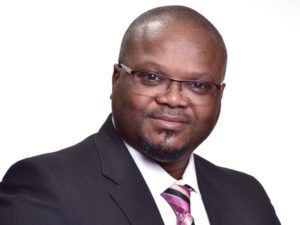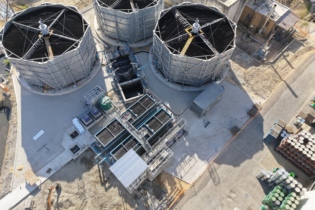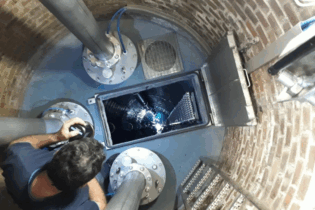Trans-Caledon Tunnel Authority (TCTA) is a State-Owned Entity (SOE) that raises funding and implements bulk raw water infrastructure projects on behalf of the government. Kirsten Kelly talks to Ntsikelelo Gosani, Project Finance Manager at TCTA about financing bulk water infrastructure.
“We raise finance and implement commercially bulk raw water infrastructure projects when government through the Department of Water and Sanitation (DWS) do not have the capacity and are stretched in terms of funds, in the main. We are a special purpose vehicle (SPV) that assists the DWS to meet some of its key performance deliverables,” explains Ntsikelelo Gosani Project Finance Manager TCTA. Typically, the project cycle will start with the minister, who will give TCTA a directive to raise funding and implement a commercially viable project. The project will be structured to make it bankable where water off-takers (from whom project costs will be recovered) will be identified, and water supply agreements or off-take agreements will be negotiated and concluded. Financial modelling is used to determine tariffs that would be levied on the off-takers to generate revenues using input assumptions that include long-term raw water demand projections, among others. An implementation agreement is then concluded between the TCTA and the DWS that governs project implementation and the receipt of revenue to honour loan agreements between TCTA and the lenders. From there, the project is taken to the market to raise funding. Once the infrastructure is built, the DWS operates and maintains the infrastructure on an integrated systems basis, while the TCTA services the debt with payments from the DWS emanating from water tariffs charged to users. Funding Water infrastructure can be financed via a variety of options, including but not limited to; commercial banks, development finance institutions (DFIs), bonds (such as capital, water and green) as well as fiscal allocations from the state. The state may fund a portion of the infrastructure project if it services an indigent community.Gosani states that none of TCTA’s projects use explicit government guarantees – except the Lesotho Highlands Water Project (LHWP). “The other projects have an implied government guarantees that embedded in the implementation agreements.”
“Water projects are an economic enabler. Lenders want to have a water project within their portfolio, and want to direct funds towards achieving Sustainable Development Goals (SDGs). TCTA has good relations with lenders. When request for proposal (RFP) funding papers are released, they are almost always oversubscribed – which is a good indication of the TCTA’s standing in the market,” he says. As is the case with most funding, credit worthiness is critical, and TCTA projects are currently rated by Moody’s Investment Service. Off takers with high credit ratings (like Sasol or City of Cape Town) that can comfortably pay water tariffs, enhance TCTA’s ability to raise funding. TCTA’s funding pipeline comprises:- Vaal River System (for Phase 2 of LHWP) – R2,6-billion
- Moloko-Crocodile Water Augmentation Project (Phase 2a) – R12-billion
- uMkhomazi Water Project (Phase 1) – R23-billion
- Berg River Voëlvlei Augmentation Scheme – ca. R900-million








